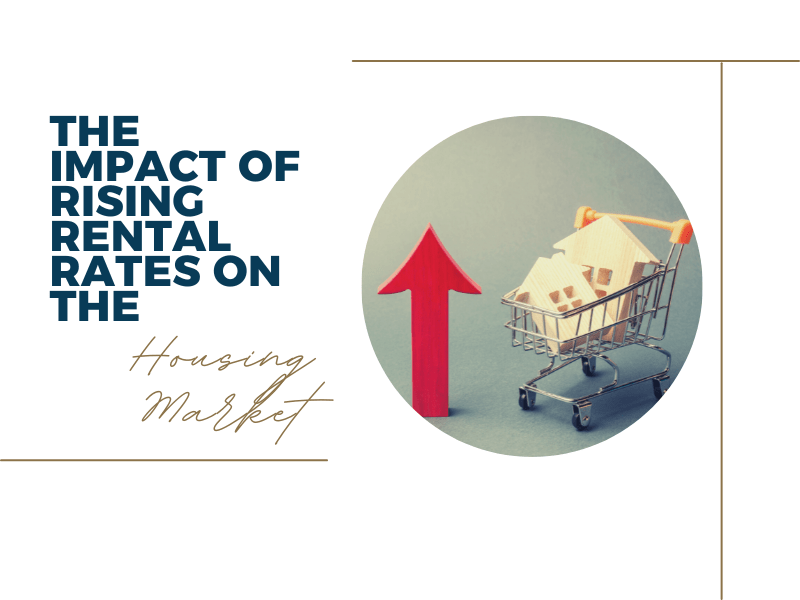
Inflation and increased demand have driven housing prices higher. This is true in Charlotte and across the country. We’re not simply talking about the sales market, either. The rental market is just as competitive and expensive. Rents, on average, are about 20 percent higher than they were a year ago.
What has caused this increase in your rental value?
For starters, it’s simple supply and demand. There is a higher demand for rental properties than there are rental properties that are available – especially affordable rental properties.
The rising prices on homes for sale are also keeping people in the rental market longer. People who may have considered buying a house this year have been completely priced out of the market, or they’ve struggled to find a home that they wanted because inventory is low there, too.
This contributes to a larger pool of tenants – all of whom are competing for your rental property.
There’s also the matter of inflation. Generally speaking, everything costs more today. Fuel prices are higher, groceries are more expensive, and the cost of everyday goods and services is going up and up and up. Housing is no different.
What does this mean for your rent?
It means that your rent is going up. And that’s a good thing, generally speaking.
Today we’re looking at the consequences – some of them unintended – of rising rental rates on the Charlotte housing market.
Charlotte Landlords are Earning More
With rents rising in Charlotte, you’re earning more money every month.
Tenants have noticed the residential rent increases spreading throughout the market, and there’s not much they can do about it. Buying won’t save them much money and many tenants find themselves agreeing to lease agreements that come with higher rents than they had planned to pay.
This is true for both new leases and existing leases that are preparing to renew. If you have a tenant who is about to renew a lease agreement, you’ll want to implement an increase in rent that comes close to where the market currently is.
Higher rents have been necessary for a lot of property owners to recover from the pandemic. After a period of high unemployment, eviction bans, and a feeling of total helplessness when they couldn’t always collect rent from their struggling tenants, a lot of property owners are seeing this as an important way to build back the money they may have lost over the last two years.
Higher rents aren’t without risks, of course. While you’re likely enjoying the better cash flow, you do have to think about the impact it may have on tenants.
- Qualifying standards may be harder to meet. When you require your tenants to earn at least three times the monthly rent, for example, finding a resident who earns that much could become challenging.
- There may be late payments and higher delinquency rates. Tenants are suffering from the rising cost of …well, everything. Some residents are enjoying higher salaries as well, thanks to a labor market that’s also experiencing shortages. But this isn’t true for all tenants. You may find yourself dealing with late rental payments. Decide how you will approach this.
- Higher costs may offset your higher rents. You’ll also need to be aware of what you’re paying when it comes to your Charlotte rental property. Those higher rents will mean higher income, but your maintenance and repairs are likely to cost more and you may notice you’re spending more for insurance, professional accounting, marketing, and advertising. Your cleaning vendors, landscapers, and handymen are all likely to be charging more.
Roommate Situations Become More Common
With rents higher, you might find that more of your applications are coming from roommates. You might have two, three, or four people applying together to rent a home. You might also see your current tenants want to bring in a roommate in the middle of the lease.
If you don’t already have a procedure in place for adding roommates or additional tenants to the lease agreement, now is a good time to put one in place. You’ll need to screen any roommates that an existing tenant wants to add.
Retention Rates are Higher
Even with rents higher than ever, vacancy rates are low. You can also expect your tenant retention rates to be higher. The tenants who are currently in place have likely done some looking around, and they know that they’re going to pay at least what they’re paying now – and probably more – if they move out of your property and live somewhere else.
You may find you lose tenants who can no longer afford the rent. In general, however, you’re likely to hold onto tenants longer when rents continue to go up. During renewal time, your offer should be at market rents. This might seem like a big jump in what your tenants are paying, but a quick online search will show them that it’s not outside of what the market demands.
When Will Charlotte Rent Increase Slow?
 There’s currently an increase in the construction of new homes, and that will eventually ease the housing shortage and bring prices back down, in both the sales and the rental market.
There’s currently an increase in the construction of new homes, and that will eventually ease the housing shortage and bring prices back down, in both the sales and the rental market.
Don’t expect this to happen soon, however. It could take a year or more before there’s enough inventory to meet the needs of the Charlotte rental market. As more supply comes onto the market, many of the renters who are currently leasing properties will again think about buying. Rents won’t see an immediate plunge, but they will – at the very least – stop rising as soon as the demand eases even a little bit.
Shifting demographics will also impact the rental market and rental values. As more people begin to retire, they might be selling homes and moving into rental housing. That’s not going to bring prices down, so property owners in Charlotte can expect to have high rents for the foreseeable future.
If you’d like to talk about what your Charlotte rental property is worth in this new market, we’d be happy to share our data and give you an idea of what you can expect to earn. Please contact us at AM Realty for a rental analysis or with any questions.
